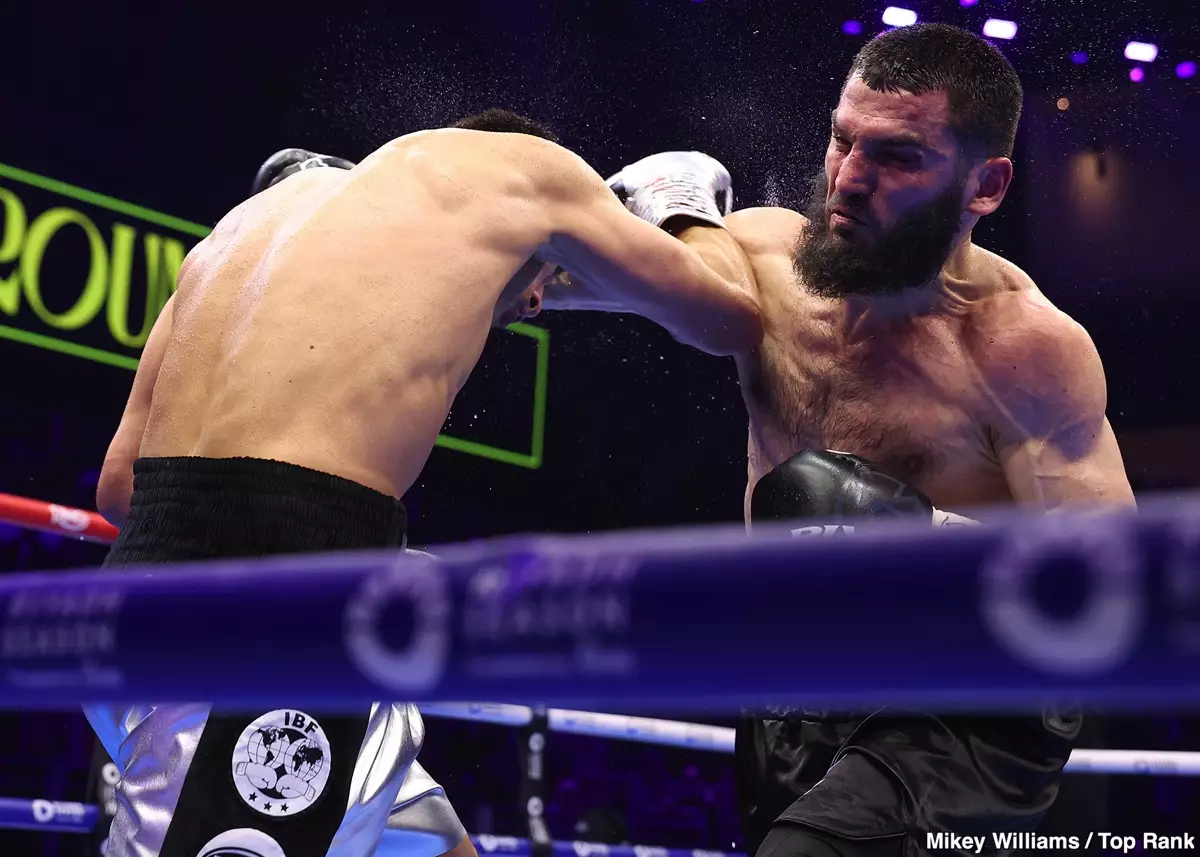By Maestro Amílcar Barnett M., The Bronx, NY, USA-
In the recent rematch between Artur Beterbiev and Dmitry Bivol, the outcome has sparked considerable debate among fans and analysts alike. Marc Ramsay, Beterbiev’s coach, expressed his belief that his fighter was ahead on the scorecards, underscoring the complexity and drama that unfolded in the ring. With a record of 21 wins (20 by knockout) and only one loss, Beterbiev’s performance was anticipated to shine once again. However, his majority decision defeat by Bivol (24-1, 12 KOs) has raised questions about fairness and competence in judging within the sport.
Ramsay confidently scored the fight in favor of Beterbiev for the first six rounds but highlighted a shift in momentum as the bout progressed. It’s akin to a carefully constructed narrative where the protagonist seems to hold the upper hand, but the plot thickens in the later chapters. The coach noted that Beterbiev’s output was particularly strong in rounds one, three, four, five, six, and surprisingly, the twelfth, where he visibly pressured Bivol and had him retreating. Beterbiev’s ability to “turn on” in crucial moments hints at a powerful fighter aware of his strengths and capable of exploiting his opponent’s vulnerabilities.
The final scoring of 115-113, 116-112 for Bivol, and a surprising 114-114 draw showed clear discrepancies in judging performance in the ring. Many observers agreed with Ramsay’s assessment and felt Beterbiev’s performance should have warranted at least a draw, if not a victory. Such disparities in the judges’ cards evoke the frustration felt by fans who thrive on fairness and competitive integrity in boxing. While one judge sided with Beterbiev, the vast majority saw Bivol as the clear winner, raising serious concerns over the subjectivity of boxing scoring.
True boxing aficionados will recall instances of perceived injustices, wondering if this bout was yet another example of the sport’s ongoing struggle with impartiality. These fights often carry a narrative weight that goes beyond the numbers, as they weave into the larger tapestry of a fighter’s legacy.
Dmitry Bivol’s strategy to incorporate clinching and movement likely annoyed Beterbiev and his supporters, who craved a more aggressive spectacle. As the fight progressed, Bivol became increasingly defensive, dwelling in “survival mode” in the latter stages, which limited the action and made it difficult for him to convincingly score rounds. Ramsay suggested that Beterbiev’s dominance could lead to a stoppage, expressing confidence in his fighter’s ability to harness power. This anticipation, however, wasn’t fully realized, leading many to question if Beterbiev could handle tactical maneuvers like those employed by Bivol in future encounters.
Considering the controversial nature of the judging in this bout, Beterbiev’s team must reassess their strategy moving forward. The prospect of a potential trilogy between the two fighters seems increasingly unlikely unless better managerial decisions are made regarding future opponents. Instead, potential matchups against notable fighters like David Benavidez or Callum Smith may be more beneficial. These fighters not only promise an engaging spectacle for fans but also mitigate the risk of being victimized by dubious decisions once again.
Ultimately, the second encounter between Beterbiev and Bivol serves as both a thrilling display of boxing artistry and a somber reminder of the ongoing challenges within the sport. As audiences continue to scrutinize the judging standards, both fighters must find their way in a landscape fraught with subjective opinions and potential injustice.


Leave a Reply